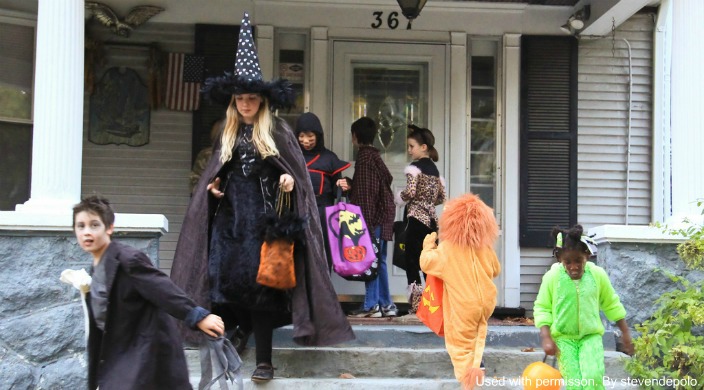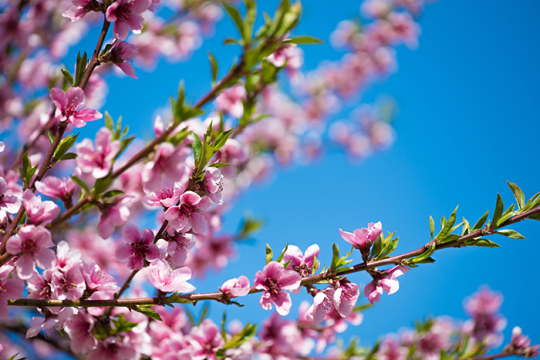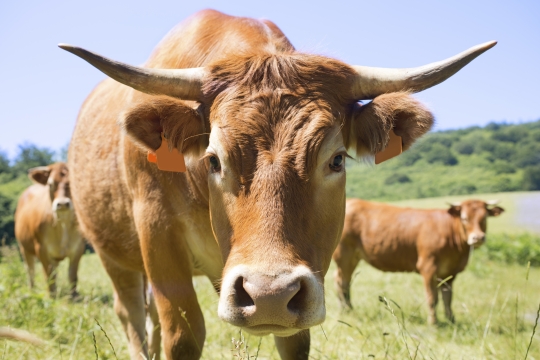
Picture this: The setting was a dining room on the East Coast on Friday, October 31st, sometime in the late 1990s. It was dinnertime, and the father of the family was seated at the head of the table while the mother scurried back-and-forth between the kitchen and the dining room. Joining them at the dinner table were their two daughters, ages 12 and 15, and two guests.
As the father stood and raised the Kiddush cup - Baruch ata Adonai, Eloheinu -
the doorbell rang. He continued with the blessing - melech haolam borei - but when the doorbell rang again, everyone at the table exchanged nervous glances. As he concluded the prayer - p'ri hagafen, everyone around the table chimed in with "Amen!"
And then the doorbell rang again.
The mother turned toward the door, as if to answer it, when her husband insisted, "Don't answer it. We're having Shabbat." The group continued with motzi and began to eat their dinner.
When the doorbell rang yet again, the father again insisted, "Don't answer it." His daughter began to protest ("But Dad, it's -"), but he cut her off: "I know what it is. It's Shabbat - and I will not have my Shabbat ruined by someone else's holiday."
The next time the doorbell rang, his daughter suggested they turn off the porch lights. "That's the way you let people know -" she began. But her father cut her off again: "I refuse to turn off my lights to let anybody know anything. They have some nerve assuming that I will answer the door on Shabbat."
*********
This uncomfortable scene, at which I was a 27-year-old guest, exemplifies the struggle some American Jews feel as we attempt to straddle the line between our tradition and modernity. When New Year's Eve and Independence Day fall on a Friday, it can tricky for liberal Jews to find a solution that works for them and their families. For many, Halloween brings additional difficulties.
This holiday simply is not Jewish. Its origins are probably Celtic - and definitely are pagan. Samhain, a Gaelic harvest festival celebrated by Pagans and Wiccans, is considered one of the ancient holidays that gave rise to the holiday we know as Halloween. Beyond being a celebration to mark the end of summer, Samhain carries with it elements of a death festival and involves the afterworld.
Many Jews today - including me - acknowledge that contemporary observance of Halloween in no way involves the cultic rites that were once a part of the holiday's early days. However, vestiges of those rituals remain. Costumes, jack-o-lanterns, and imagery of the occult all find their origins in ritual practices that belong to others. Even trick-or-treating was originally the method by which the poor would beg for food in exchange for reciting prayers for the dead.
Halloween, then, is essentially a festival of the dead and all of its corresponding superstitions and folklore. This is where I find my first departure between Halloween and Jewish belief: Judaism celebrates life. After all, was it not God who said:
I call this day heaven and earth as my witness: See, I set before you life and death, blessing and curse. Now, choose life so that you and your children may live. (Deuteronomy 30:19)
Second, there is a certain element of Halloween that makes me extremely uncomfortable: the "trick" aspect of Halloween. Egging, toilet-papering, forks in the ground - these so-called innocent pranks go beyond the mischievous. They are meant to be destructive, both physically and emotionally.
Finally, our family is fortunate that we are able to provide our children with their needs and many of their wants. With more than 47 million Americans living with food insecurity, I question the ethics of encouraging my children to wander through our upper-middle-class neighborhood, essentially asking for handouts of Hershey bars.
Perhaps I would feel a whole lot better about Jews celebrating this markedly not-Jewish holiday if they would apply the same fervor and religiosity to their observance of Jewish holidays. Americans will spend $7.4 billion on their Halloween candy, costumes, and decorations. I wonder how much American Jews spend on their Sukkot decorations and food?
In the meantime, having encouraged our children to attend public school and engage in modern society, I do permit them to participate in Halloween activities - to a limited extent and never at the expense of our Jewish values or practice. In other words, no scary, bloody costumes, and we don't decorate. No discussion of costumes until the Jewish fall holidays (through Sh'mini Atzeret/Simchat Torah) are over. Trick-or-treating comes before we sit down for Shabbat, and we put the bowl of candy on the porch while we are enjoying our festive meal.
But once the table is cleared tonight, we will answer the door and greet the neighborhood kids. Because, as Reform Jews, we continue to straddle the boundary between our Jewish and our secular worlds.
Related Posts

Melding Tradition and Innovation: Our Interfaith Toddler Naming Ceremony


